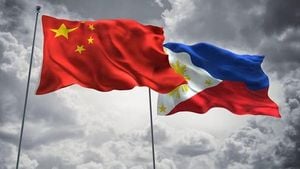The Minnesota Wild face significant offseason decisions regarding young center Marco Rossi, rumored to be on the trading block once again. Despite his impressive 22 goals and 54 points in 70 games, speculation suggests a possible trade due to a valuation gap between Rossi's camp and the Wild. As a restricted free agent due for a raise, the team may consider moving him to avoid financial strain, though trading him without proper return could weaken their center depth.
Marco Rossi recorded 22 goals and 54 points in 70 games this season, and as of March 23, 2025, his Standings Points Above Replacement stands at 4.1, leading the Wild and ranking him in the top-15 among centers league-wide. The Wild's significant trade history, particularly with young centers, raises alarms over their current center depth. The team may focus on developing other prospects such as Danila Yurov, but the looming uncertainty around Rossi highlights the delicate balance the Wild must maintain if they wish to remain competitive in the NHL.
The trade rumors intensified after Michael Russo, noted sports journalist, stated on the podcast "Worst Seats in the House" that he believes there's a greater than 70% chance that Rossi will be traded this summer. Russo added, "I genuinely think, reading the tea leaves, that they're gonna move him this summer... They're so far apart on what Rossi's camp values him at versus the Wild, it's not even funny." This disconnect could lead the Wild down a challenging path if they trade Rossi without securing an adequate return.
If Rossi is traded, the Wild could find themselves in a precarious position. Elite centers are becoming increasingly rare in the NHL, and the Wild's previous trades, such as shipping out Marat Khusnutdinov for Justin Brazeau, have done little to instill confidence in their center depth. There's considerable risk associated with allowing a player like Rossi, who has shown his potential, to leave the roster and could ultimately jeopardize the Wild's standing among the competitive Western Conference teams.
Looking ahead, the Wild have limited high-caliber options available to them should Rossi depart. While centers like John Tavares could be on the market, the appeal of Minnesota may not be enough to lure such players, especially as they approach 35 years of age. The speculative landscape leaves the Wild with a stark reality: if they cannot secure a center-for-center deal that improves their position, trading Rossi could mean losing depth down the middle.
The Wild's center depth has faced vulnerabilities in recent seasons. Consideration of how other teams have managed their roster strategies emphasizes the necessity of strong center depth. Teams like the Colorado Avalanche and Dallas Stars showcase their robust center options, which bolsters their competitive standings. The Wild's decision to potentially trade Rossi, viewed through this competitive lens, could be interpreted as a misreading of the NHL's economic landscape.
In the absence of Rossi, Yurov may be seen as the cornerstone to bridge the gap. Though a top prospect, relying solely on a newcomer to step into Rossi's role is a gamble. The previous experience with Khusnutdinov demonstrated the unpredictability of young players successfully transitioning into key roles within the league.
Ultimately, the Minnesota Wild find themselves at a crossroads. Should they trade Rossi, they could risk undermining their objectives for a deeper playoff run—an ambition heightened by their recent playoff experiences. The need for caution is paramount as the Wild reconcile the implications of a potential trade against the reality of center scarcity in today's NHL.
As fans and analysts speculate about Rossi's future, the conversations about the prospect's value underscore larger questions about the Wild's long-term strategy, their relationship with young talent, and the stakes involved in the competitive landscape of professional hockey. Missed opportunities in maximizing talent in the center position can have cascading effects throughout the roster, affecting the team's capacity to contend for the coveted Stanley Cup.




